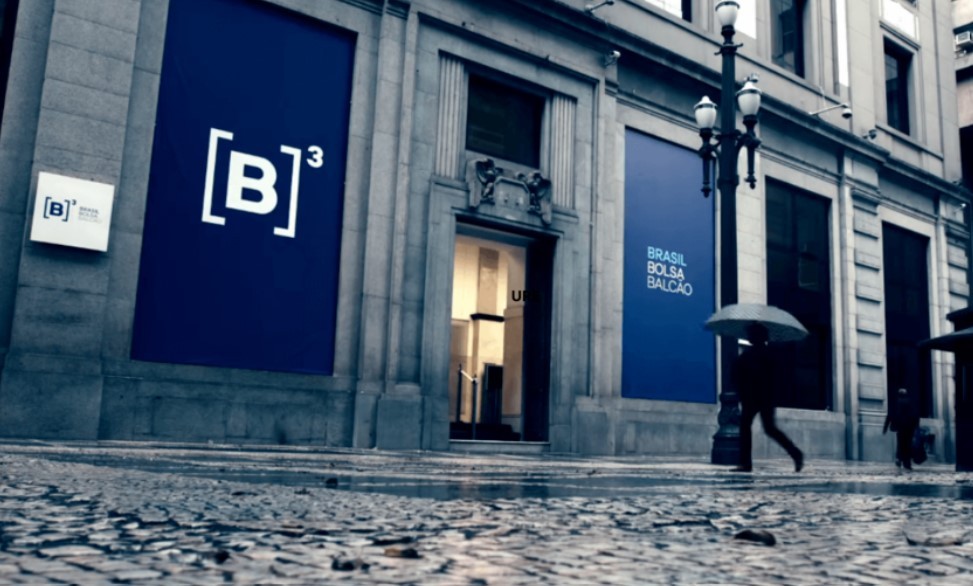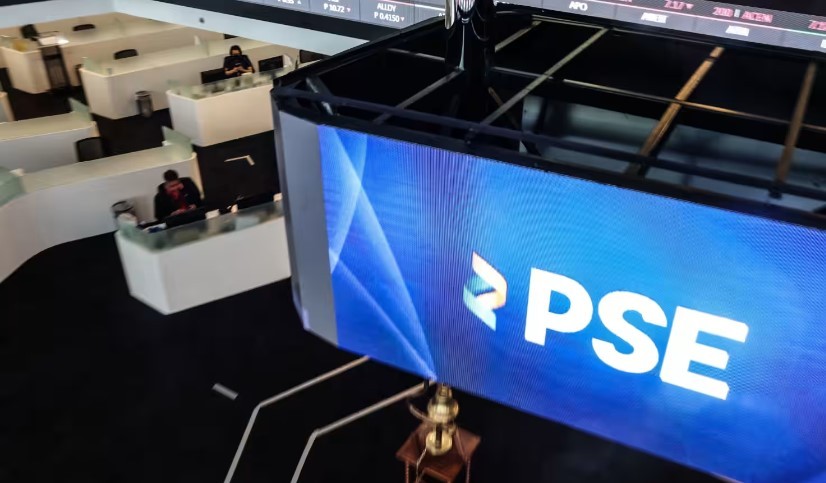Can Foreigners Buy or Invest in Paris Stock Exchange Market?
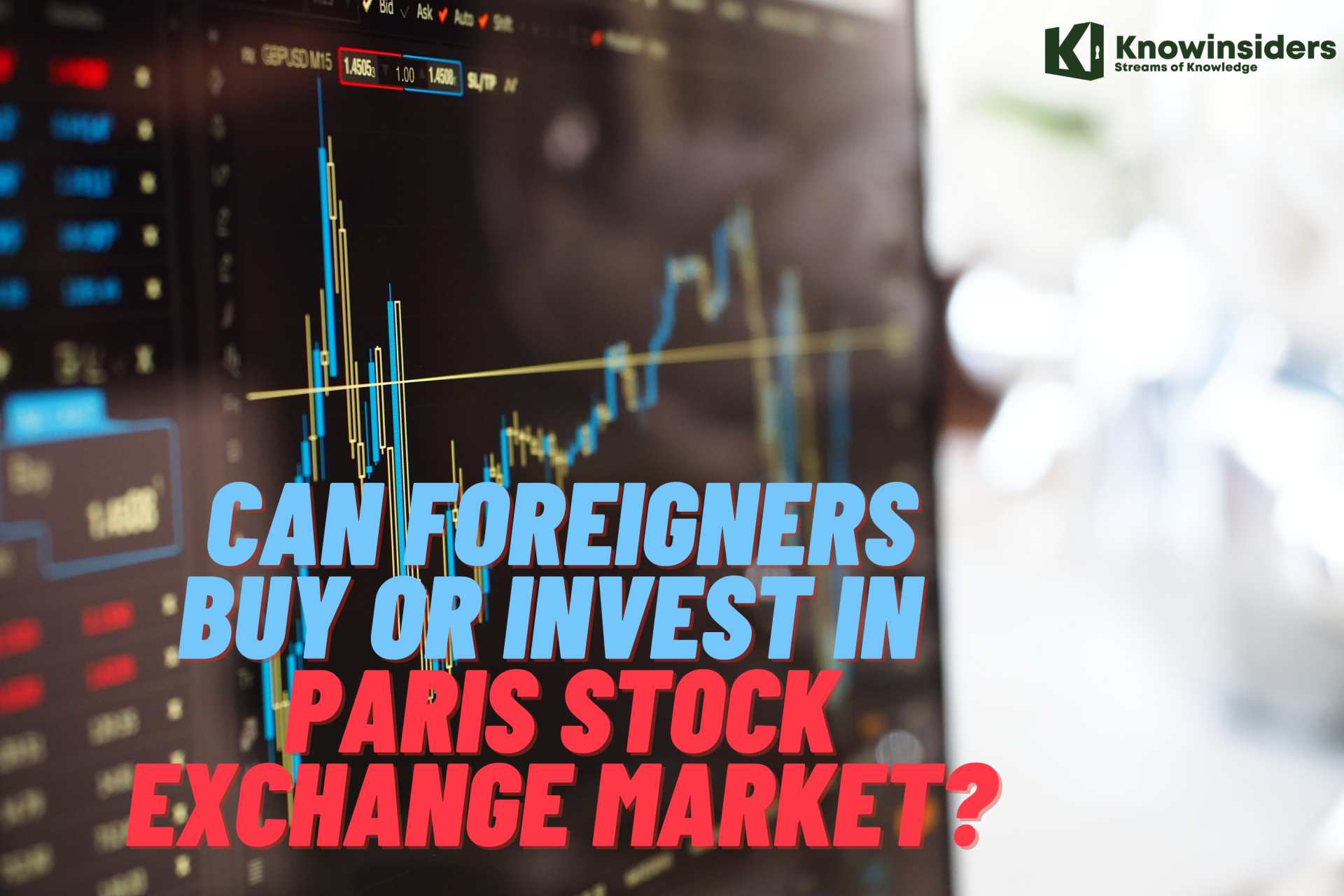 |
| Can Foreigners Buy Or Invest In Paris Stock Exchange Market? Photo KnowInsiders |
An Overview of Euronext Paris Stock Exchange Market
In 2000, the Paris Stock Exchange merged with exchanges in Amsterdam, Brussels and to form Euronext – it has since also merged with the Lisbon, Dublin, Oslo and Milan markets.
The CAC 40 Index is used as a benchmark for French stock market performance and represents the 40 largest companies on Euronext Paris in terms of liquidity. The CAC 40 includes companies such as L’Oreal, Renault and Michelin.
The Paris stock market is open from 9:00am to 5.30pm local time (GMT+2hrs).
How to buy French shares
Before you can trade French shares, you will need to first open an account.
From your account, simply select ‘trade now’ and ‘international’ to search for the shares you want to invest in. You will be prompted at this point to sign Exchange Agreements – this gives you access to live international share pricing.
How to open a trading account from France?
 |
| Photo JPost |
There are several factors to consider when opening a trading account, including the user-friendliness of the platform or the minimum deposit amount. Let's deep dive into these.
The time it takes to open an account typically ranges from a few minutes to a few weeks. The identity verification that marks the end of the process differs at various brokers. The account opening process is fully online in most cases, but there are brokers that require customers to mail a copy of their documents. The documents you usually have to upload and/or send (a copy) are of the following:
Proof of identity: national ID, passport, driving license, etc.
Proof of address: bank statements, utility bills, etc.
There are brokers that require a minimum deposit to authorize your trading account. The minimum deposit is usually $0 or a low amount, but some brokers demand a couple of thousands dollars/euros.
| Downsides of investing in the French stock market France is a relatively safe market for stock investment, but there are some risks attached. France is affiliated with the European Union. Therefore, all the countries in the coalition are financially correlated as well as liable for each other’s issues, up to a specific range. France is a rich and stable country in the EU, so it has a lot to lose. Currently, Spain and Greece are coping with debt payment issues and the possibility that France could have to bear the cost increases. France has a socialist business environment. The government regulates the business too closely and the taxes are high. Employees enjoy several benefits like long vacations, short work weeks, and a liberal retirement plan. Therefore running a business in France can be costly. These factors can affect the profit margins, so shareholders get less money than what they could from investing in countries with capitalist economies. Lastly, the French share market holds a majority of large and settled companies. It is great for a steady income, but there is no room for growth. The chances for your investment to break the border are probably not possible. Developing markets are volatile and risky, but offer a possibility for great returns. |
Most popular French shares
Below is a preview of the most purchased shares by ii customers over recent months.
Most purchased shares in Q2 2021
| Rank | Fund |
| 1 | Airbus |
| 2 | McPhy Energy |
| 3 | LVMH Moet Hennessy |
| 4 | TotalEnergies |
| 5 | Valneva |
| 6 | Sanofi |
| 7 | L'Oreal |
| 8 | Air France-KLM |
| 9 | Danone |
| 10 | BNP Paribas |
(Source: interactive investor. Note: the top 10 is based on the number of “buys” between 1 April and 30 June 2021.)
| Fees and charges It costs £9.99 a month to join ii, which includes our Stocks and Shares ISA, Trading Account and Junior ISA. Add a SIPP for just £10 a month extra. We give you a £7.99 free trade credit every month, which can be used towards international shares. Additional international trades cost £19.99. Frequent traders can get reduced rates on international shares with our Super Investor service plan. There is a foreign exchange fee of 1.5% when you trade in pounds. This is reduced for transactions over £25,000. You can avoid paying this fee every time you trade by holding foreign currency in your account. |
How to invest in stocks from France
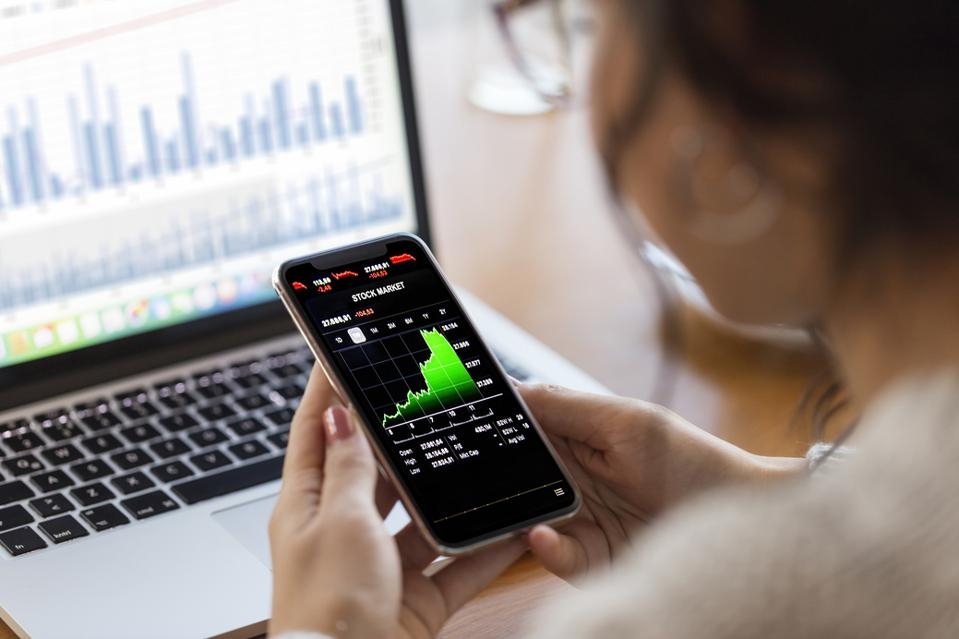 |
| Photo Forbes |
Stocks are a good fit for various investment strategies and investor types. Whether it's the thrill of riding market waves in search of quick gains, or the desire to benefit from long-term growth, stocks carry a definite allure. Either way, investing in stocks is serious business that requires careful consideration.
Thankfully, investing in stocks has never been easier. If you're wondering how to invest in stocks from France, we have good news for you: there are many safe and high-quality online brokers that offer their services for clients in France. Among these, you can find providers that offer stocks from France, but if you're looking to invest in other global markets, your possibilities open up even more.
If you are interested in our guide about how to buy shares online, click here.
Are you ready to start? Let us show you how to invest in stocks from France in four simple steps: 1) find an online broker; 2) open an account; 3) fund your account; and 4) buy the stocks you need.
Find an online broker
There are literally hundreds of online brokers out there, and while some are dubious operators, most are reasonably safe and of acceptable quality. Do you feel overwhelmed by this large selection? No worries – we have picked five quality brokers for you that are available in France and which are especially suitable for stock investing. You can view them at the end of this article.
In case you want to do your own research, we can help with that, too. First, you need to make sure that the broker you're looking at is available in France. Some brokers are available in only one country or region (such as the US or the UK), but others are more global in their outreach, and allow clients from most countries in the world to open an account.
Before you commit to a broker, you should consider what kind of stocks and markets you want to invest in. Many brokers grant access only to their home markets (be it the US, the UK or India); while others offer stocks from dozens of exchanges around the world. If you live in France but fancy buying some hot US tech stocks or simply want to assemble a global stock portfolio, make sure your broker offers trading on the stock markets you're interested in.
Safety is also a very important consideration. Here at BrokerChooser, we only recommend brokers that are regulated by at least one top-tier financial authority. Please note that some global brokers operate via several legal entities, each regulated by a local authority – so for example, US clients would be overseen by a US regulator, and UK clients by a UK financial authority. Some regulators also run investor protection schemes, making you eligible for compensation if your broker goes bankrupt.
| Understand a different kind of market orders accessible in French stock market You can sell or buy a security on the French stock exchange depending on your strategy and preferred price point. When you place market orders, there are transaction costs. Therefore if you ignore this and place an order, then it can turn into a costly error. Therefore understand the different stock market order types before investing in the French share market. |
Open your account
Opening an account at an online broker is usually easy and straightforward, and takes place fully online. Most of the time, you just need to provide your name, address and other basic information, and maybe answer some questions about your wealth/income status, financial knowledge or trading experience. Make sure you have your documents at hand, as copies of a photo ID and some recent bank statements or utility bills are usually required to verify your identity and residency.
Once you have completed your registration, it normally takes another day or so for your account to be verified, although at some brokers this process can take up to three days or even more. Some locally-focused brokers may even require overseas clients to send documents by mail, making the process more cumbersome. But once your account is verified, you're all set to start investing!
Many brokers offer several account types to choose from, such as individual or joint accounts, or various tax-free accounts. If you're a stock investor who's saving up for retirement, check with a local tax expert to see if you may be eligible for tax-advantaged accounts offered by your broker.
In general, don't forget about taxes – wherever you reside, selling a stock at a profit or collecting annual dividends from a company whose shares you own is likely to have some tax implications. We can't offer you specific tax advice, but if you want to learn more about the general principles of taxation when it comes to stocks and other investment instruments, read this overview.
Fund your account
So your trading account has been verified; the next step is to fund it – in other words, to deposit money that you will then use for buying stocks. Some brokers require a minimum deposit when you open your account, but most brokers do not have such a requirement, allowing you to take your time before committing any funds.
All brokers will allow you to deposit or withdraw funds via bank transfer; an easy, usually free, though not always super-fast method. Withdrawing money to your bank account can take as long as three days.
Many brokers also let you deposit (though not withdraw) funds using credit or debit cards. A few will also accept so-called electronic wallets such as PayPal, Apple Pay, Skrill or Neteller. The biggest benefit of cards and e-wallets is that transactions take place instantly, allowing you to start investing – or reap the proceeds of a successful stock sale – right away.
| Please note that while bank account withdrawals are free in most cases, withdrawals to an overseas bank account sometimes come with an extra charge. Withdrawals by wire transfer (in case ACH or SEPA transfers are not an option) can likewise be costly. Assess your situation is, and make sure you choose a broker where such costs – which can run up to $45 per transaction at some brokers – do not apply. |
Find and buy stocks
Now that you have a brokerage account with enough money on it to start your investment journey, so let us finally show you how to buy stocks online.
You may already know which stock(s) you want to buy; if not, it's worth checking out the research section of your broker, which often includes trading ideas and recommendations by in-house experts or third-party analysts. Alternatively, you can do a bit of research on your own, and check the selected stock's earnings multiples, or read up on industry news.
Once you have settled on a stock, it's easy – just select it from the broker's search menu, enter the number of shares you want to buy, and press "Buy". Most trading platforms will offer several order types - such as a "Market" order to buy at the current price, or a "Limit" order to buy later at a specific price. To learn more about various order types, read this article.
When investing in stocks online, fees will likely be among your top concerns. To help you make sense of the various costs of trading, we compiled this handy guide.
Please note that if your broker has global market coverage, it may apply different fees to stocks from different countries or exchanges. For example, UK stocks may carry a higher commission than US stocks, or vice versa. Often, these differences have to do with taxes or fees charged by exchanges, such as a 0.5% stamp duty levied by the London Stock Exchange.
Top brokers for beginners to invest in French stocks
What makes these brokers a good place to invest in stocks from France? The most important selection criteria were the fair trading and non-trading fees, availability of easy-to-use web and mobile trading platforms, and the depth of stock market selection.
Are you ready to give it a go but still feel intimidated by the large selection of brokers out there? Worry not. We have compiled a list of safe brokers that are available in France and are great for investing in stocks. We recommend that you pick one of the following brokers:
Interactive Brokers, International broker providing all asset classes
DEGIRO, German-Dutch discount broker
Saxo Bank, Danish investment bank
XTB, Global CFD broker
eToro, Global social trading broker
| *Revolut - the best broker for beginners in France in 2021. Free stock trading. Fast and easy account opening. Great mobile trading platform. *DEGIRO is the runner-up. One of the lowest fees on the market. Regulated by multiple top-tier authorities. Easy-to-use web and mobile platform. *Passfolio placed third. Free US stock and ETF trading. Great mobile platform. Fast and fully digital account opening. *Saxo Bank is number four. Great trading platform. Outstanding research. Broad product portfolio. *eToro. Just made it to the list in fifth place. Free stock and ETF trading. Seamless account opening. Social trading experience. |
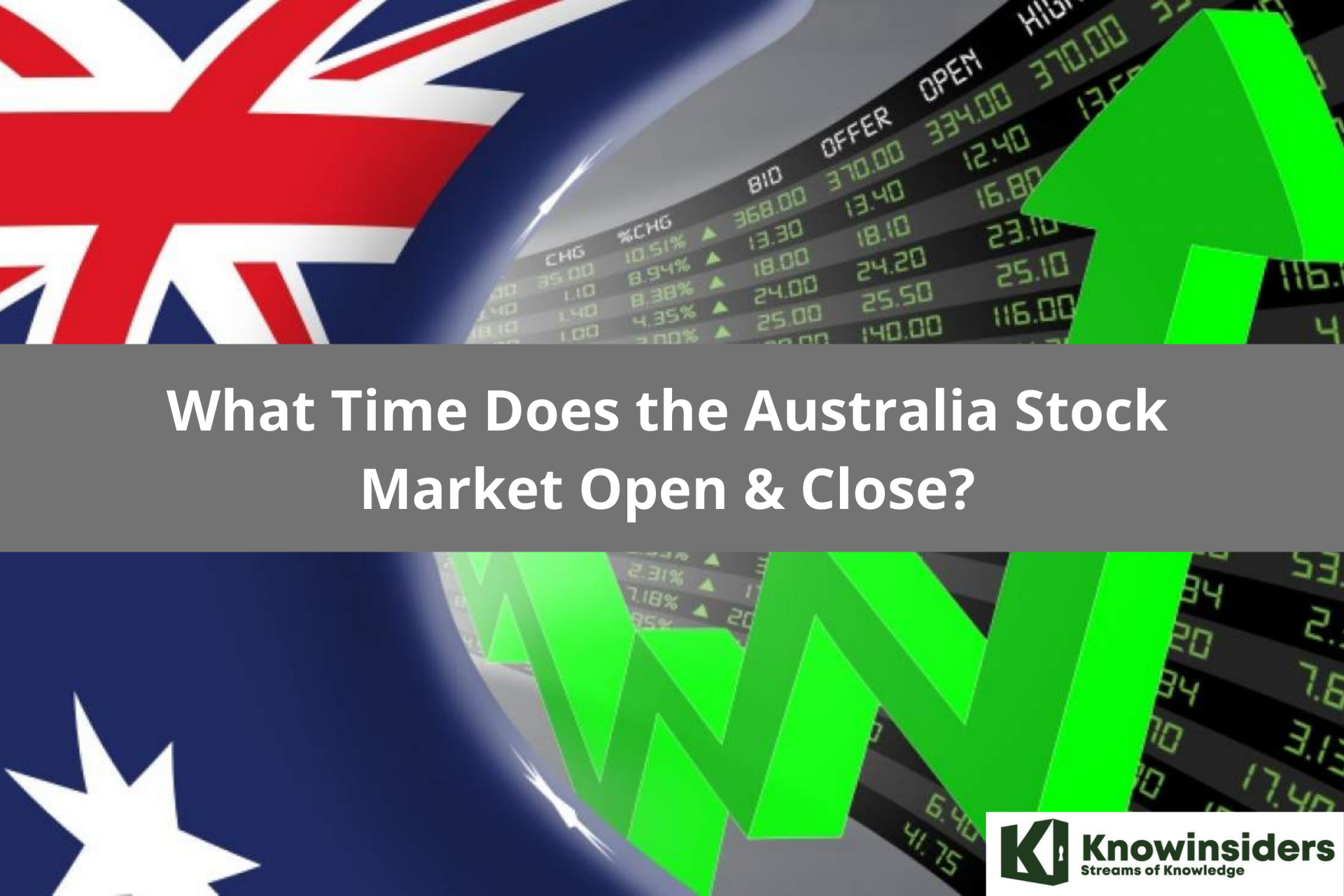 What Time Does the Australia Stock Market Open & Close? What Time Does the Australia Stock Market Open & Close? When does the Australian stock market (Australian Securities Exchange) open or close? Check out the opening & closing hours, break, holidays and more. |
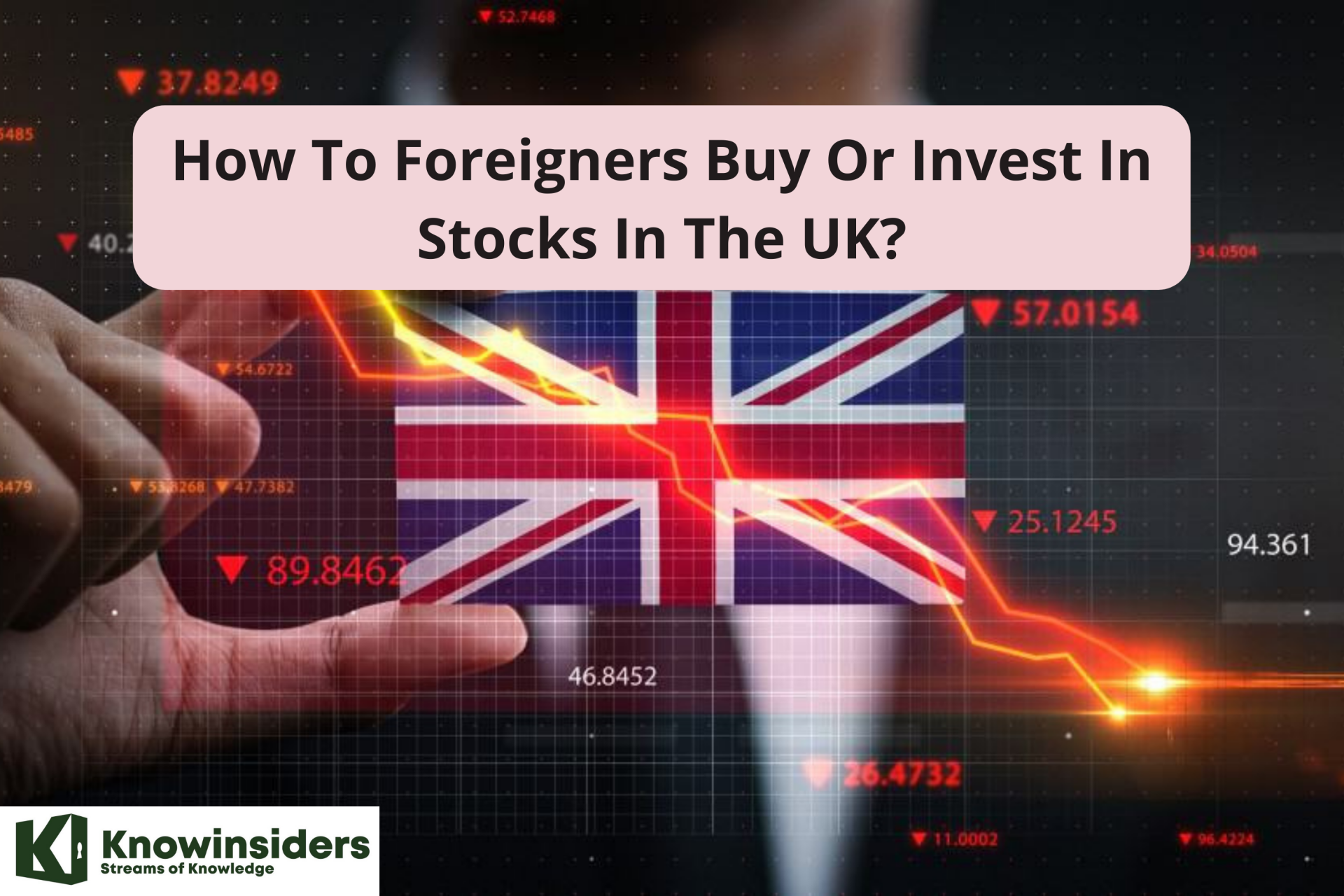 Can Foreigners Buy Or Invest In UK Stock Market? Can Foreigners Buy Or Invest In UK Stock Market? How to buy (invest in) stocks in the UK for non-UK residents? Read on to know the guidelines and tips for investing the stocks for ... |
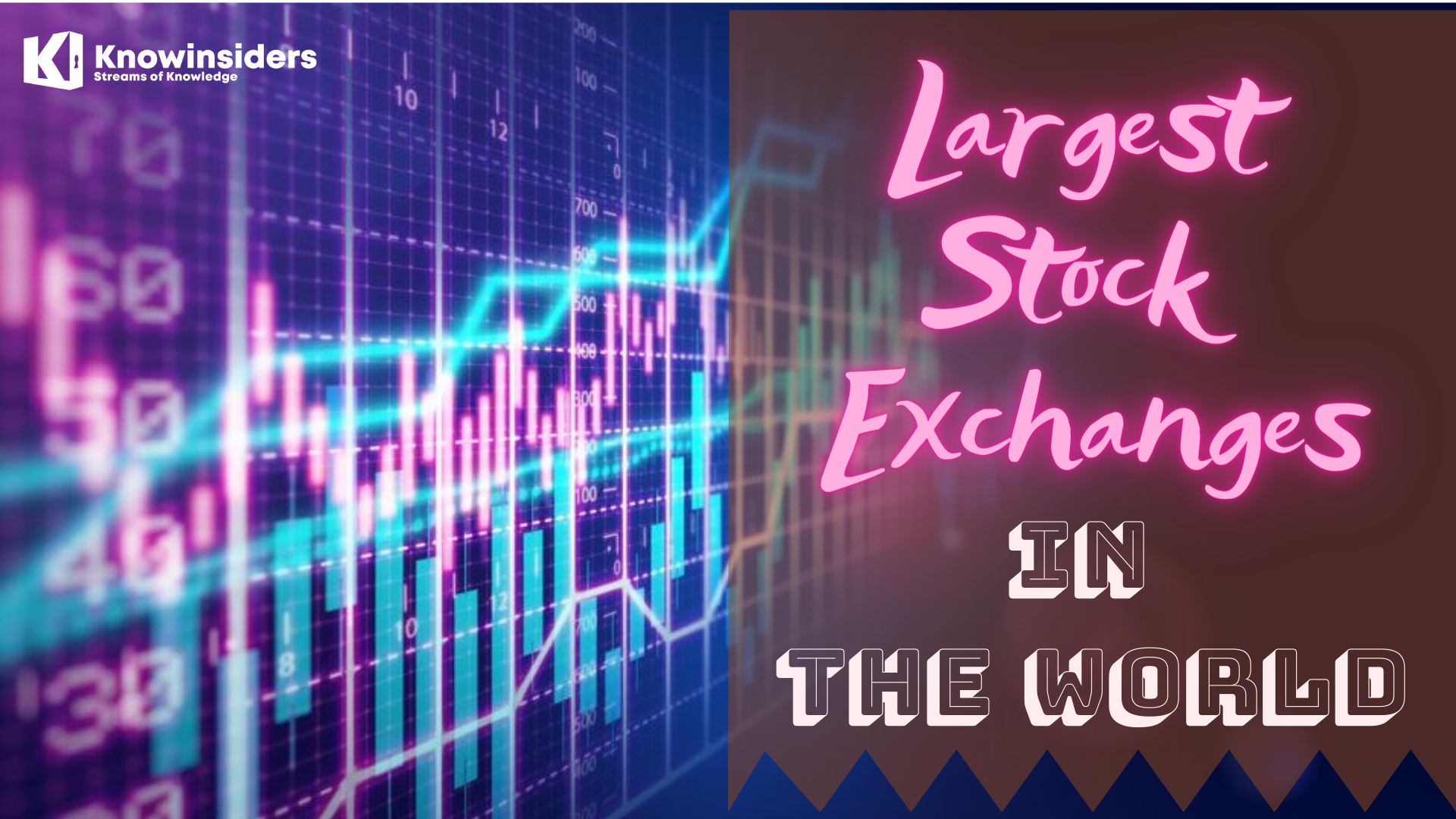 Top 10 Largest Stock Exchanges In The World Top 10 Largest Stock Exchanges In The World The stock exchange plays a crucial role in world trade and economic stability. Here are the top 10 largest stock exchanges in the world. |



